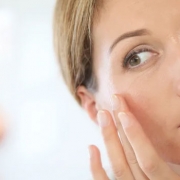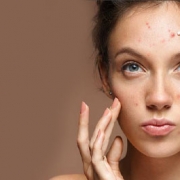Revolutionizing Acne Treatment: The Role of AI in Skincare
Introduction:
In recent years, artificial intelligence (AI) has emerged as a game-changer across various
industries, and the field of skincare is no exception. With its ability to analyze vast amounts of
data and identify patterns, AI is revolutionizing the way we approach acne treatment. This
powerful technology is empowering dermatologists and skincare experts to develop more
personalized and effective solutions for individuals struggling with acne. In this article, we will
explore the rule of AI in acne treatment and how it is transforming the skincare industry.
1. Advanced Skin Analysis:
One of the primary contributions of AI in acne treatment is its capacity to conduct advanced skin
analysis. Traditionally, dermatologists relied on manual examination and subjective assessments
to diagnose and treat acne. However, AI-powered tools can now analyze images of the skin with
incredible precision, identifying various acne-related factors such as lesion type, severity, and
location. This analysis provides dermatologists with a comprehensive understanding of the
patient’s condition, enabling them to tailor treatment plans more accurately.
2. Personalized Treatment Recommendations:
Every individual’s skin is unique, and what works for one person may not yield the same results
for another. AI algorithms can process vast amounts of data, including patient information, medical
history, and treatment outcomes, to create personalized treatment recommendations. By
considering various factors, such as skin type, lifestyle, and environmental influences, AI can
suggest targeted interventions, including topical creams, oral medications, or lifestyle
modifications. These personalized recommendations improve the likelihood of successful
outcomes and minimize trial-and-error approaches to acne treatment.
3. Predictive Analytics:
AI’s ability to analyze large datasets can also aid in predicting acne outcomes and treatment
efficacy. By examining historical data, AI algorithms can identify patterns and trends that help
dermatologists anticipate how a patient’s acne might progress over time. This foresight enables
early intervention and more proactive treatment strategies, preventing severe breakouts and
potentially reducing the risk of scarring. Predictive analytics powered by AI algorithms provide
dermatologists with valuable insights, enhancing their decision-making and optimizing patient
care.
4. Virtual Skincare Assistants:
In addition to assisting dermatologists, AI is also making its way into the hands of consumers
through virtual skincare assistants. These intelligent virtual assistants can be accessed via
smartphone apps or websites and offer personalized skincare guidance to individuals suffering
from acne. By analyzing user-provided information and images, AI-powered virtual assistants can
recommend appropriate skincare products, routines, and lifestyle modifications. This accessibility
empowers individuals to take control of their acne treatment, promoting self-care and fostering a
sense of empowerment.
5. Enhanced Research and Development:
AI is catalyzing advancements in acne treatment by accelerating research and development efforts.
With access to vast amounts of data, AI algorithms can identify potential correlations, therapeutic
targets, and novel approaches to acne management. This enables researchers to explore new
avenues and develop innovative treatments more efficiently. Furthermore, AI-powered
simulations and virtual testing platforms can speed up the drug discovery process, reducing the
time and cost associated with bringing new acne medications to market.
Conclusion:
Artificial intelligence is transforming the field of acne treatment, bringing unprecedented
precision, personalization, and efficiency to skincare practices. Through advanced skin analysis,
personalized treatment recommendations, predictive analytics, virtual skincare assistants, and
enhanced research and development, AI is empowering dermatologists and individuals alike. As
AI continues to evolve and integrate into the skincare industry, we can expect even more
breakthroughs in acne treatment, improving the lives of millions affected by this common skin
condition









